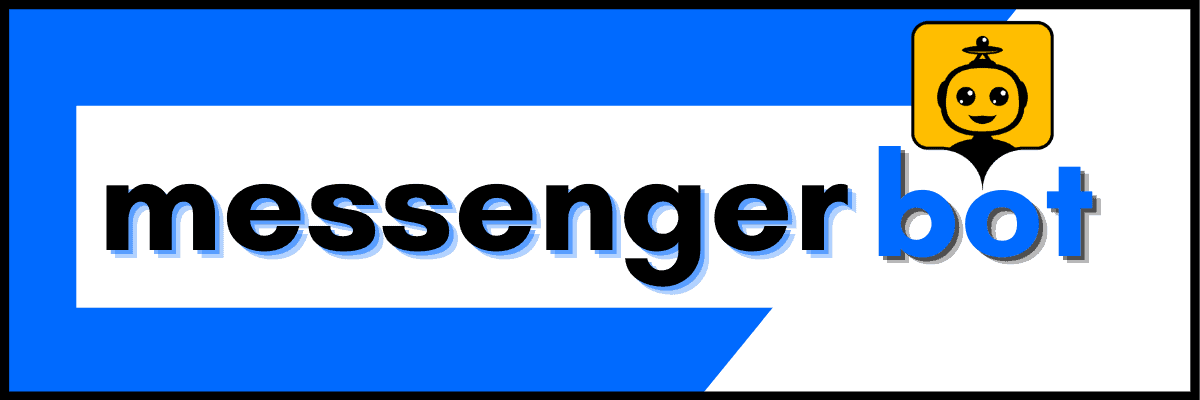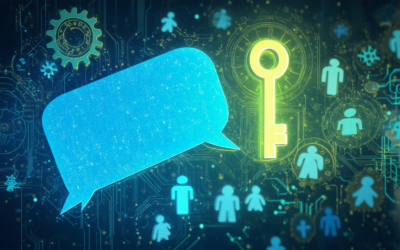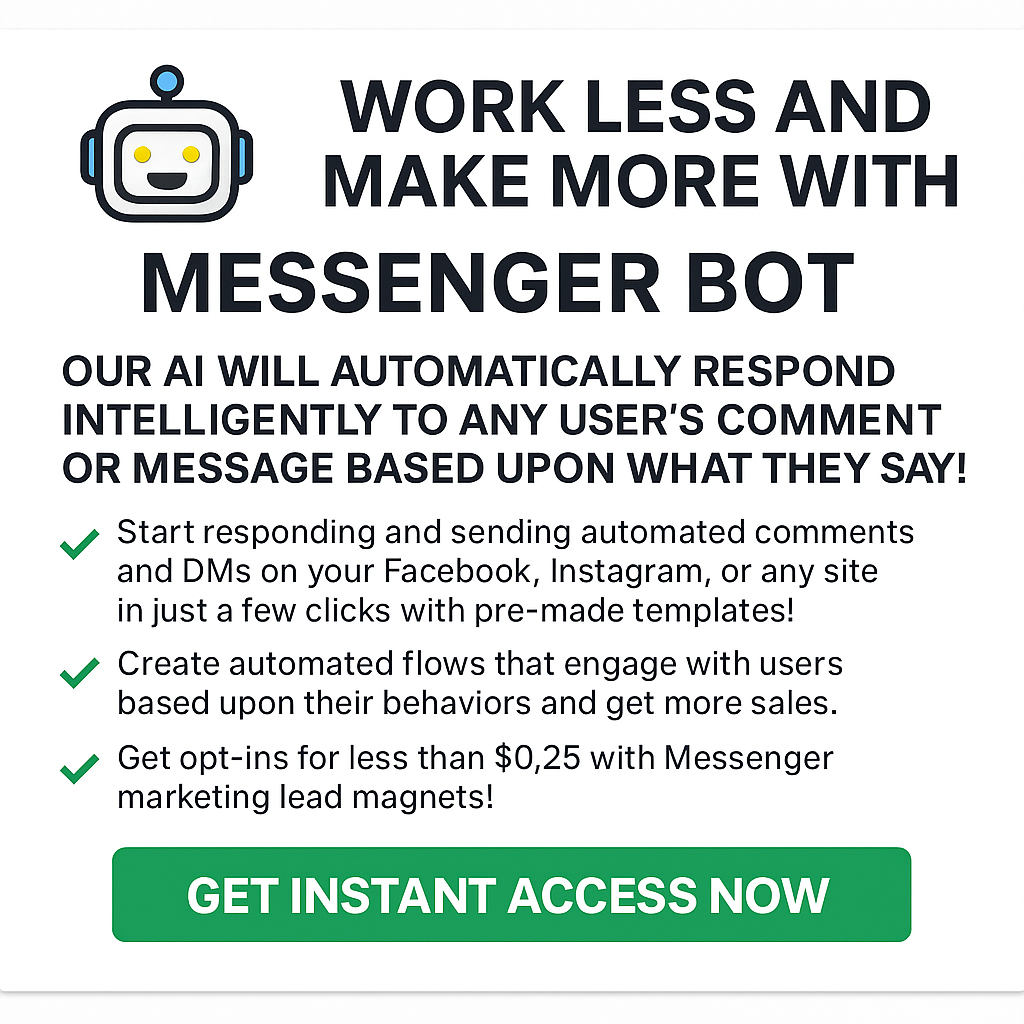In the rapidly evolving digital landscape, websites with chatbots are revolutionizing online customer engagement. As businesses strive to provide seamless, round-the-clock support, chatbots have emerged as powerful tools for enhancing user experience and streamlining communication. From e-commerce giants to service-oriented platforms, an increasing number of websites are leveraging chatbot technology to offer instant assistance, answer queries, and guide users through their online journey. This article explores the top 10 websites with chatbots, showcasing how these AI-powered conversational interfaces are transforming customer service, boosting efficiency, and setting new standards for online interaction. Whether you’re curious about which website has the best chatbot or seeking insights into implementing a free chatbot for your own site, join us as we delve into the world of digital assistants and discover how they’re shaping the future of online customer engagement.
Revolutionizing Customer Engagement with Website Chatbots
In today’s digital landscape, website chatbots have become a game-changer for businesses looking to enhance customer engagement and streamline their online presence. As a leader in AI-driven communication solutions, we at Messenger Bot understand the transformative power of chatbots for websites. Let’s dive into how these intelligent assistants are reshaping the way businesses interact with their customers online.
Which website has the best chat bot?
Determining the “best” chatbot is subjective and depends on specific business needs. However, several websites stand out for their exceptional chatbot implementations. Apple‘s support chatbot is known for its efficiency in handling customer queries. Airbnb‘s chatbot excels in personalized travel recommendations. Our Messenger Bot platform offers a versatile solution that can be tailored to various industries, providing AI-powered conversations that rival the best in the market.
When considering the best chatbot for your website, it’s crucial to look for features like natural language processing, multi-channel support, and integration capabilities. These elements ensure that your chatbot can effectively engage visitors, answer queries, and guide them through your website seamlessly.
The evolution of online customer service
The journey of online customer service has been nothing short of revolutionary. From basic FAQ pages to sophisticated AI-driven chat interfaces, the evolution has been rapid and impactful. Early chatbots were limited to simple, rule-based responses, often frustrating users with their inability to understand context or handle complex queries.
Today’s advanced chatbots, powered by AI and machine learning, offer a vastly improved experience. They can understand natural language, learn from interactions, and provide personalized responses. This evolution has transformed chat for websites from a novelty to an essential tool for businesses of all sizes.
The integration of chatbots into websites has led to significant improvements in customer satisfaction and operational efficiency. Businesses can now offer 24/7 support, handle multiple customer interactions simultaneously, and collect valuable data to improve their services. As we continue to innovate with platforms like Messenger Bot, we’re excited to see how chatbots will further evolve to meet the changing needs of businesses and consumers alike.

Understanding Chatbots for Websites
At Messenger Bot, we’re at the forefront of revolutionizing online customer engagement through advanced chatbot technology. Chatbot websites are digital platforms that incorporate AI-powered conversational agents to interact with visitors, answer queries, and provide assistance 24/7. These intelligent systems are designed to simulate human-like conversations, offering a seamless and interactive experience for users navigating a website.
As a leader in chatbot solutions, we’ve seen firsthand how websites with chatbots are transforming the way businesses communicate with their audience. From e-commerce giants to small local businesses, chatbots are becoming an integral part of online customer service strategies.
What are chatbot websites?
Chatbot websites are online platforms that leverage AI and natural language processing to engage visitors through automated conversations. These digital assistants can be integrated into various types of websites, from e-commerce stores to service-oriented platforms, providing instant support and guidance to users.
At Messenger Bot, we specialize in creating sophisticated chatbots that can be seamlessly incorporated into any website. Our chatbots are designed to handle a wide range of tasks, from answering frequently asked questions to guiding users through complex processes. This technology is not just about automating responses; it’s about creating an engaging and personalized experience for each visitor.
Benefits of implementing chatbots on websites
Implementing chatbots on websites offers numerous advantages for businesses and customers alike. Here are some key benefits:
- 24/7 Availability: Chatbots provide round-the-clock support, ensuring that customer queries are addressed at any time, enhancing user satisfaction and potentially boosting conversions.
- Instant Responses: With chat for websites, visitors receive immediate answers to their questions, reducing wait times and improving the overall user experience.
- Cost-Effective: By automating routine inquiries, businesses can significantly reduce customer service costs while maintaining high-quality support.
- Scalability: Chatbots can handle multiple conversations simultaneously, allowing businesses to scale their customer service operations efficiently.
- Data Collection: Through interactions, chatbots gather valuable insights about customer preferences and behavior, helping businesses refine their strategies.
- Personalization: Advanced chatbots can offer personalized recommendations and support based on user data and interaction history.
At Messenger Bot, we’ve developed our chatbot technology to maximize these benefits for our clients. Our free chatbot for website options allow businesses of all sizes to experience the advantages of AI-powered customer engagement without a significant upfront investment.
By integrating chatbots into your website, you’re not just adding a feature; you’re revolutionizing your approach to customer interaction. As we continue to innovate in the field of AI-driven communication, we’re committed to helping businesses create more engaging, efficient, and personalized online experiences for their customers.
III. Exploring AI-Powered Conversations
As we delve deeper into the world of websites with chat bots, it’s crucial to explore the intricacies of AI-powered conversations. These advanced chatbots are revolutionizing online interactions, offering personalized and efficient customer service experiences. By leveraging natural language processing and machine learning algorithms, AI chatbots can understand context, learn from interactions, and provide increasingly accurate responses over time.
The integration of AI in chatbot technology has opened up new possibilities for businesses to engage with their customers. From answering complex queries to guiding users through purchase decisions, AI-powered chatbots are becoming indispensable tools for enhancing customer engagement and streamlining operations. However, as we explore this technology, it’s important to consider both its capabilities and limitations, especially when it comes to content moderation and ethical considerations.
A. What AI chat allows inappropriate content?
While AI chatbots have made significant strides in understanding and generating human-like responses, the issue of inappropriate content remains a challenge. Some AI chat platforms, particularly those with less stringent content filters, may inadvertently allow inappropriate or offensive content to slip through. This can occur due to biases in training data, limitations in contextual understanding, or deliberate misuse by users.
For instance, OpenAI’s ChatGPT, while highly advanced, has faced scrutiny for occasionally generating content that could be considered inappropriate or biased. Similarly, Microsoft’s Tay chatbot, launched in 2016, was quickly taken offline after it began producing offensive tweets based on interactions with users who deliberately fed it inappropriate content.
To address these concerns, reputable chatbot providers like Messenger Bot implement robust content moderation systems and ethical guidelines. These measures help ensure that AI-powered conversations remain safe, appropriate, and aligned with brand values. It’s crucial for businesses to choose chatbot solutions that prioritize content safety and offer customizable moderation settings.
B. Ethical considerations in AI chatbot development
As AI chatbots become more prevalent on websites with live chat capabilities, developers and businesses must grapple with various ethical considerations. These include:
- Transparency: Users should be informed when they are interacting with an AI rather than a human agent.
- Privacy and data protection: Chatbots must handle user data responsibly, adhering to regulations like GDPR and CCPA.
- Bias mitigation: Developers should strive to eliminate biases in AI algorithms that could lead to unfair or discriminatory responses.
- Accountability: Clear guidelines should be established for handling errors or inappropriate responses generated by AI chatbots.
- Human oversight: While automation is key, human monitoring and intervention capabilities should be maintained to address complex issues.
Companies like Brain Pod AI are at the forefront of addressing these ethical concerns, developing AI solutions that prioritize responsible and ethical use of chatbot technology. By focusing on these ethical considerations, businesses can harness the power of AI-driven conversations while maintaining trust and integrity in their customer interactions.
As we continue to explore the landscape of websites with chatbots, it’s clear that the future of online customer engagement lies in striking the right balance between advanced AI capabilities and ethical, responsible implementation. This approach ensures that businesses can leverage the full potential of AI-powered conversations while providing safe, reliable, and valuable experiences for their users.
IV. The Prevalence of Chatbots in Online Platforms
As websites with chat bots become increasingly common, it’s clear that these AI-powered assistants are revolutionizing online customer interactions. The adoption of chatbots across various industries has been nothing short of remarkable, transforming how businesses engage with their audience and streamline operations.
A. How many websites have chatbots?
The prevalence of chatbots on websites has grown exponentially in recent years. According to recent statistics, approximately 40% of large businesses have implemented or plan to implement chatbots on their websites. This number is even higher for e-commerce platforms, with an estimated 80% utilizing some form of chat for website functionality.
Small to medium-sized businesses are also catching up, with about 25% of them incorporating chatbots into their online presence. This widespread adoption is a testament to the effectiveness of chatbots in enhancing customer experience and operational efficiency.
B. Industries leading in chatbot adoption
While chatbots are becoming ubiquitous across various sectors, certain industries are at the forefront of this technological revolution:
1. E-commerce: Online retailers are leveraging chatbots to provide 24/7 customer support, assist with product recommendations, and streamline the purchasing process. Amazon, for instance, uses sophisticated chatbots to handle customer inquiries and guide shoppers through their vast product catalog.
2. Banking and Finance: Financial institutions are using chatbots to offer personalized banking services, handle account inquiries, and even provide financial advice. Bank of America’s Erica is a prime example of an AI-powered assistant in this sector.
3. Healthcare: The healthcare industry is adopting chatbots to schedule appointments, provide basic medical information, and offer mental health support. Babylon Health has pioneered the use of AI chatbots for initial patient assessments.
4. Travel and Hospitality: Airlines and hotels are using chatbots to handle bookings, provide travel information, and offer personalized recommendations. Kayak’s chatbot assists travelers in finding flights, hotels, and rental cars with ease.
5. Education: Educational institutions and e-learning platforms are implementing chatbots to answer student queries, provide study resources, and offer personalized learning experiences. Duolingo’s chatbot helps language learners practice conversations in a safe, AI-driven environment.
The rapid adoption of chatbots across these industries underscores their versatility and effectiveness in enhancing customer engagement. As AI technology continues to evolve, we can expect to see even more sophisticated chatbots online free of human limitations, capable of handling complex queries and providing highly personalized experiences.
At Messenger Bot, we’re at the forefront of this chatbot revolution, offering cutting-edge solutions that enable businesses of all sizes to harness the power of AI-driven customer interactions. Our platform allows for seamless integration of chatbots into websites, social media channels, and messaging apps, ensuring that businesses can meet their customers wherever they are.

Best Websites with Chatbots: Top Examples
As websites with chatbots become increasingly prevalent, it’s essential to explore some of the best implementations that are setting the standard for customer engagement. Let’s dive into some top examples of websites leveraging chatbot technology to enhance user experience and streamline customer interactions.
E-commerce giants leveraging chatbot technology
In the e-commerce sector, chatbots have become indispensable tools for improving customer service and boosting sales. One standout example is Amazon, which utilizes its chatbot to assist customers with order tracking, product recommendations, and general inquiries. The Amazon chatbot exemplifies how AI can handle a high volume of customer interactions efficiently, providing quick responses and reducing the workload on human customer service representatives.
Another e-commerce powerhouse, eBay, has implemented a sophisticated chatbot that helps users find products, place bids, and resolve issues. eBay’s chatbot showcases how websites with chatbots can create a more personalized shopping experience by understanding user preferences and offering tailored suggestions.
At Messenger Bot, we’ve observed that successful e-commerce chatbots often integrate seamlessly with existing platforms, providing a cohesive experience for users. Our platform enables businesses to create chatbots that can handle complex e-commerce tasks, from product inquiries to boosting sales through personalized recommendations.
Service-oriented websites with exceptional chatbots
Service industries have also embraced chatbot technology to enhance customer support and streamline operations. Airbnb‘s chatbot is a prime example of how websites with chatbots can improve the booking process and provide instant support to travelers. The Airbnb chatbot assists users with finding accommodations, answering frequently asked questions, and even offering local recommendations.
In the banking sector, Bank of America‘s Erica chatbot demonstrates the potential of AI in handling sensitive financial inquiries. Erica can help customers check their balance, schedule payments, and even provide personalized financial advice, showcasing how chatbots can offer valuable services in industries that require high levels of trust and security.
At Messenger Bot, we understand the importance of creating chatbots that can handle complex service-oriented tasks. Our platform allows businesses to develop chatbots that can revolutionize customer service by providing quick, accurate responses to a wide range of inquiries.
These examples highlight how websites with chatbots are transforming online interactions across various industries. By implementing AI-powered chat solutions, businesses can significantly enhance customer engagement, streamline operations, and provide 24/7 support. As chatbot technology continues to evolve, we can expect to see even more innovative applications that further blur the line between human and AI interactions.
VI. Free Chatbot Solutions for Website Enhancement
As a leader in the chatbot industry, I’ve seen firsthand how free chatbot solutions can significantly enhance websites. These tools offer businesses of all sizes the opportunity to improve customer engagement and streamline operations without a hefty investment.
A. Chat bot online free: Options for small businesses
For small businesses looking to dip their toes into the world of chatbots, there are several excellent free options available. These free chatbots can provide basic functionality to enhance customer service and engagement on your website.
Some popular free chatbot platforms include:
1. MobileMonkey: Offers a free plan with basic features for Facebook Messenger and web chat.
2. Tars: Provides a free plan with limited conversations per month.
3. Landbot: Offers a free plan with basic features and limited monthly conversations.
While these free options can be a great starting point, it’s important to note that they often come with limitations in terms of features, customization, and the number of interactions. As your business grows, you may want to consider upgrading to a more robust solution like Messenger Bot, which offers advanced AI-powered features and seamless integration across multiple platforms.
B. Implementing a free chatbot for website improvement
Implementing a free chatbot on your website can lead to significant improvements in user experience and engagement. Here’s how you can get started:
1. Choose the right platform: Select a free chatbot platform that aligns with your business needs and offers easy integration with your website.
2. Define your chatbot’s purpose: Determine the primary functions you want your chatbot to perform, such as answering FAQs or guiding users through your site.
3. Design conversation flows: Create logical conversation paths that address common user queries and guide them towards desired actions.
4. Integrate with your website: Most free chatbot platforms provide a simple code snippet that you can add to your website to embed the chatbot.
5. Test and refine: Regularly monitor your chatbot’s performance and user interactions to identify areas for improvement.
While free chatbots can offer a good starting point, businesses looking for more advanced features and seamless integration across multiple channels should consider a comprehensive solution like Messenger Bot. Our platform offers AI-powered responses, workflow automation, and multilingual support, allowing you to create a more sophisticated and effective chatbot experience for your website visitors.
For those interested in exploring more advanced AI-powered solutions, Brain Pod AI offers innovative chatbot technologies that can further enhance your website’s capabilities. Their AI chat assistant and AI writer tools can provide even more sophisticated interactions and content generation for your site.
By implementing a chatbot, whether free or premium, you’re taking a significant step towards improving your website’s functionality and user experience. As the digital landscape continues to evolve, chatbots are becoming an increasingly essential tool for businesses looking to stay competitive and meet the growing expectations of online customers.
VII. Advanced Chatbot Applications and Future Trends
As we continue to push the boundaries of AI technology, websites with chat bots are evolving to offer more sophisticated and engaging user experiences. The future of chatbots promises even more advanced applications and innovative trends that will reshape how we interact with digital platforms.
A. Roleplay AI chat bot: Enhancing user experience
Roleplay AI chatbots are emerging as a powerful tool for enhancing user experience across various industries. These advanced chatbots can assume different personas or roles, making interactions more engaging and tailored to specific scenarios. For example, in e-commerce, a roleplay chatbot might take on the role of a personal shopper, offering personalized product recommendations based on the user’s preferences and past purchases.
In the education sector, roleplay AI chatbots can simulate historical figures or characters from literature, providing an immersive learning experience for students. This application not only makes learning more interactive but also helps in retention and understanding of complex subjects.
The gaming industry is also leveraging roleplay AI chatbots to create more dynamic and responsive non-player characters (NPCs), enhancing the overall gaming experience. These chatbots can adapt their responses based on the player’s actions and choices, creating a more personalized and engaging storyline.
B. Jasper Chat and other innovative chatbot platforms
Innovative chatbot platforms like Jasper Chat are pushing the boundaries of what’s possible with AI-driven conversations. These platforms utilize advanced natural language processing (NLP) and machine learning algorithms to provide more human-like interactions.
Jasper Chat, for instance, offers a range of features that go beyond simple question-answering. It can generate creative content, assist with writing tasks, and even help with brainstorming ideas. This versatility makes it a valuable tool for content creators, marketers, and businesses looking to streamline their workflows.
Other innovative platforms are focusing on specific niches. For example, Brain Pod AI’s multilingual AI chat assistant is designed to break down language barriers, enabling businesses to provide seamless support to a global customer base. This type of specialized chatbot is particularly valuable for companies with an international presence or those looking to expand into new markets.
We’re also seeing the rise of chatbots that integrate with various business tools and platforms. These integrations allow for more seamless workflows and data sharing across different departments within an organization. For instance, a chatbot might be able to access customer data from a CRM system, inventory information from an ERP system, and support tickets from a help desk platform, all to provide more comprehensive and accurate responses to user queries.
As we look to the future, we can expect to see even more advanced applications of chatbot technology. Emotional intelligence in chatbots is an area of active research, with the goal of creating bots that can recognize and respond appropriately to human emotions. This could revolutionize customer service, mental health support, and many other fields where empathy and emotional understanding are crucial.
Another exciting trend is the development of multimodal chatbots that can process and respond to various types of input, including text, voice, and even visual cues. This could lead to more intuitive and natural interactions between humans and AI systems.
In conclusion, the future of chatbots is bright and full of potential. As these technologies continue to evolve, we can expect to see even more innovative applications that will transform how we interact with websites with chat bots and digital platforms in general. The key for businesses will be to stay ahead of these trends and leverage the right chatbot solutions to enhance their customer experience and operational efficiency.





